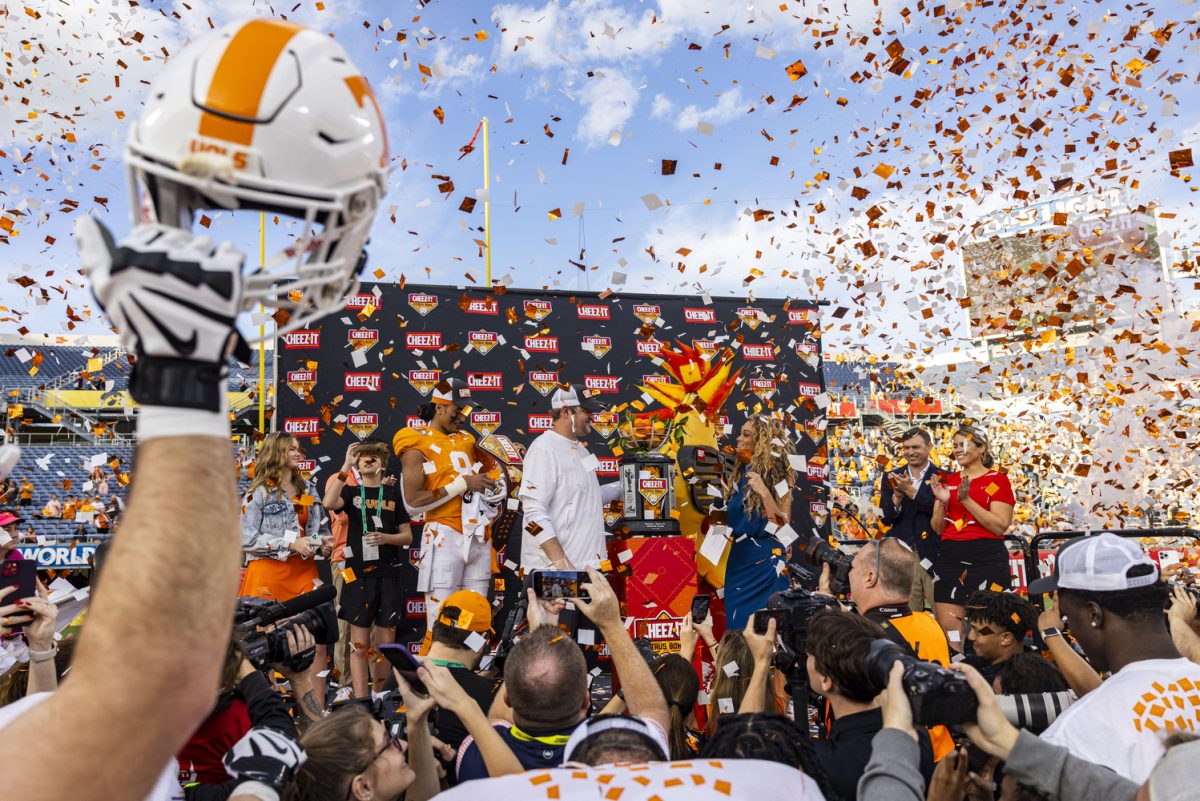Yes
Bowl games may be a far cry from the honors associated with the College Football Playoff National Championship, but they obviously still mean something in the world of the sport.
While some bowl games are admittedly obscure — yes, there’s actually a Pop-Tarts Bowl — they all give competing teams a chance to earn some level of recognition. Let’s also not forget the fact that the New Year’s Six, referring to six different bowl games around the holiday, all have the chance to determine the national champion.
Every year, the semifinal games are represented by either the Rose and Sugar, Orange and Cotton, or Peach and Fiesta Bowls. If bowl games had no meaning, six of them wouldn’t pave the way toward the national championship game.
You also have to look at how a bowl game can cement or tear down a team’s seasonal legacy. Iowa is a perfect example of this. In the 2023-24 season, the Hawkeyes, led by an absolute defensive powerhouse, went 10-2 in the regular season.
This sounds great on the surface, but when all your wins come from unranked teams, most of them the same rotation of Big Ten foes you’ve played for years, doesn’t that suddenly seem like less of a good look?
A 10-2 record looks good on paper, but Iowa’s performance in the Cheez-It Citrus Bowl last season, a 35-0 blowout to Tennessee, showed the Hawkeyes there’s still work to be done, especially on the offensive end. This is not a crushing blow to morale or a mean-spirited twist of fate; the loss served as a reminder that good defense alone, especially against ranked teams, won’t cut it.
Ultimately, bowl games, while numerous and often named as tacky marketing techniques, still mean something in the world of college football. Without them, teams would be confined mostly to their own conference, matchups like Iowa and Tennessee would seldom happen, and of course, the road to the national title would look way, way different.
No
With the expansion of the College Football Playoff to 12 teams and the payment of players, bowl games really mean nothing.
Sure, the “bowl games” that lead up to the championship mean something — but not because they’re inherently bowl games. It’s because they lead up to that prized final game. The Rose Bowl and Orange Bowl used to be the most-anticipated games of the season. Now, they’re a means to an end.
In fact, now that 12 teams can make the final tournament, teams are chasing a conference championship or one- or two-loss season for a spot in that bracket. They’re not chasing, say, a Sugar Bowl appearance for its inherent value.
That’s because no one is paying attention to your Pop-Tarts Bowl — or whatever you will. In today’s college football era, fans, media, recruits, and their families want to see a team that competes for a national title.
Look at this season. Iowa football went in with solid odds to be one of those 12 teams. After the loss to Iowa State, the fans still showed up, but it wasn’t hard to gauge the investment in the team dropped way off.
The only thing that kept players playing was the sake of time. Jay Higgins, a solid mid-draft selection to the NFL this year, is sticking this season out because of his character. Kaleb Johnson, on the other hand, knew he could get picked early if he stayed healthy — and make big bucks as a result.
Indeed, college football players are also going to programs that will pay them a hefty sum above all else — and especially above teams that will just go play in a bowl game. Bryce Underwood, the No. 1 player in the class of 2025, committed to LSU before flipping to Michigan upon a $10 million check to move to Ann Arbor.
Players like Underwood don’t care for the bowl games. They know they can get paid to play, and if they’re not going to play where a championship is, they’re going to play where the dollar signs are instead.



